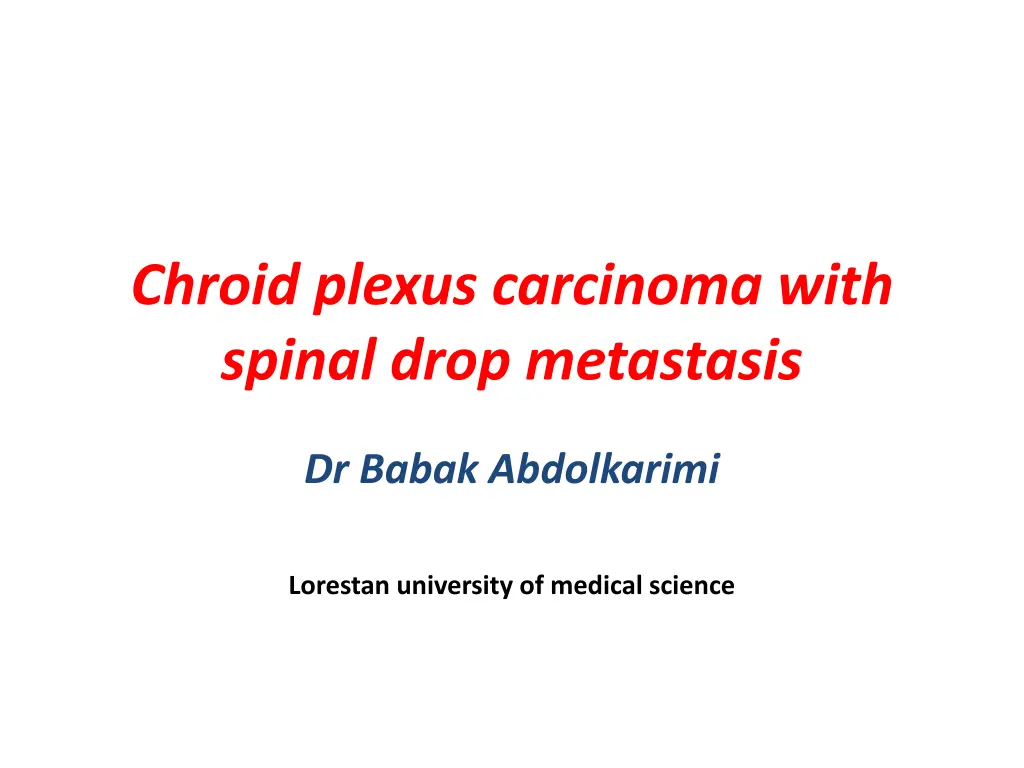
Choroid Plexus Carcinoma with Spinal Drop Metastasis Overview
Learn about Choroid Plexus Carcinoma with Spinal Drop Metastasis, its diagnosis, treatment, and prognosis. Detailed images and information provided by Dr. Babak Abdolkarimi from Lorestan University of Medical Science.
Download Presentation

Please find below an Image/Link to download the presentation.
The content on the website is provided AS IS for your information and personal use only. It may not be sold, licensed, or shared on other websites without obtaining consent from the author. If you encounter any issues during the download, it is possible that the publisher has removed the file from their server.
You are allowed to download the files provided on this website for personal or commercial use, subject to the condition that they are used lawfully. All files are the property of their respective owners.
The content on the website is provided AS IS for your information and personal use only. It may not be sold, licensed, or shared on other websites without obtaining consent from the author.
E N D
Presentation Transcript
Chroid plexus carcinoma with spinal drop metastasis Dr Babak Abdolkarimi Lorestan university of medical science
Grade III/IV WHO Invasion to parietal lobe
IHC recommendation: Pan-CK,vimentine,S- 100,GFAP,PLAP,CD117, AFP,hCG,synaptophysi, NSE,INI1,Ki67
WHOLE BODY bone scan: Normal
Incidence Choroid plexus tumors have an annual incidence of about 0.3 per 1 million cases.[4] It is seen mainly in children under the age < 5,[5] representing 5% of all pediatric tumors 20% of tumors in children <1 year old. [6]F=M .[7] Although choroid plexus carcinomas are significantly more aggressive and have half the survival rate as choroid plexus papillomas, they are outnumbered in incidence by 5:1 in all age groups.[7][8] a total resection of a tumor have a 86% survival rate, while patients who only receive a partial resection have a 26% 5-year survival rate. Many incomplete resections result in recurrence within 2 years of primary surgery
Etiology The sometimes occur in conjunction with other hereditary cancers, including Li Fraumeni syndrome and malignant rhabdoid tumors. A mutation in the tumor suppressor gene TP53 is usually characterized in this disease
Work up 1.TP53 R337H mutation 2.IHC & INI1 protein expression (distinguishes ATRT from choroid plexus carcinoma.) 3.abdominopelvic CT (Shunt-related abdominal metastases) 4.CSF cytology:+ for malignant cell Whole body bone scan
Treatment approach: 1.chemotherapy 2.craniospinal radiation(subtotal resection &drop metastasis) 3.autologus HSCT
